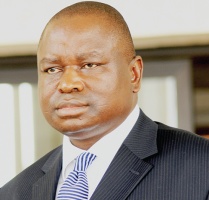Year in year out, the leadership of Nigeria expend a huge amount of the country’s resources on the commemorations and celebrations of the country’s Independence, while various civil organisations, interest groups and other stakeholders of the country hold different programmes where they feast, deliberate and brainstorm on the challenges of development of Nigeria over the decades, some with impeccable concern on the level of stagnation if not backwardness of Nigeria state when compared to other countries of the world while others are just calculated attempt to syphon another huge amount of money from the national treasury. However, it is alarming that despite these annual rituals that gulp billions of naira, a lasting solution has not been found to the challenges of development confronting Nigeria.
Beyond rhetorics, it is very conspicuous, the fact that Nigeria is still plagued with numerous challenges ranging from mass illiteracy, poor infrastructural facilities, lack of job opportunities and enabling business environment, to ethnic cum religious bigotry, corruption, political instability, lack of a clear political system and low adherence to the principles of the rule or law. These
endemic problems of Nigeria are capable of capsizing Nigeria’s ship if all hands are not on deck.
Regrettably, these challenges are not new to the political history of Nigeria and for the past 57 years that the Nigeria state has come to being, this challenges rather than subdued, have been waxing stronger and gathering momentum as they recycle into day-to-day crisis of the country. The Bokoharam insurgency, Niger/Delta militancy, herdsmen incessant attacks and recent outcry of cessation by a section of the country are all lucid testifiers to the above facts.
Education is one ofthe viable propellers of development capable of soaring an individual, group, society or even state to prominence. Any country that fails to get it right might not witness any noticeable development. All countries of the world that have undergone unprecedented growth and development can not discredit the impact of education on their ascension story. Unfortunately, Nigeria as a country has been moving at at a rather low pace despite her huge expenditure in the education sector. The reason for this can not be farfetched. Nigeria has not been able to design her education strategy in an holistic way and to conform with the obtainable realities of the country, rather it has remain as it was bequeathed to her by her colonizers, disregarding the fact that her colonizers’ design of education for her colonies was principally not to librate or civilise the people but to make them worthy servants of her Majesty. No wonder the education system is not vibrant enough to trigger industrial and technological advancement of the country. Despite the hue and cry for mass literacy and feigned plans of succeeding leaderships of the country to enable every kit and kin in the country acquire a basic education, the number of out-of-school children is on the increase by the day. This justifies an hypocritical methods of execution of our education strategy and policies overtime.
Similarly, to talk about the infrastructural decadence, low teaching aid and unavailability of qualified and competent workforce in our education sector is but stating the obvious. The schools are unappealing and highly exorbitant especially when compared to the income of average Nigerians. The end result of this education debacle is yearly production of incompetent graduates and high level of illiteracy in the country.
This singular menace in education sector accounts for most other endemic problems of the country, especially the gruesome and untameable youth restiveness across the country, Bokoharam insurgency, Niger/Delta militancy, kidnapping, robbery, secret cult activities and a number of other hazards, as unengaged, uneducated and as result gullible youths are the masterminds of those atrocities. Therefore a solution to the problem of education could go a long way in putting the country in order.
While some have attributed the failure of Nigeria’s education system to the poor policies of past administrations, one could convincingly argue that it is a deliberate attempt of leaders to keep the masses in perpetual ignorance so as to continue to prey on them by amassing unmerited affluence to themselves and at the same time restrict the chain of leadership to themselves and their offsprings. The latter claim could be justified when one considers the level at which political leadership has become an exclusive family affairs of some people in the country.
This corrupt practices has not only brought retardation to the country internally but has also elicited reputational pulverization and as a result, poor foreign relations for Nigeria amidst the comity of states. The immediate past president of USA, President Barack Obama in 2008 mocked Nigeria’s self deciet of claiming to be the giant of africa, by espousing the level of corruption of the political class and total wreckage of the country. Also, many diplomatic insults have been lashed out on Nigeria in the time past as a result of corruption of the political class at one time or the other. Thanks to the efforts of the incumbent administration in the crusade against corruption, however on a sluggish and inequitable pace.
Similarly, the lack of foresight of the Nigeria’s leadership over successive administrations and their inability to diversify the economy despite the hue and cry by economic experts over the years is not only part or the present bane but also an indication of a bleaking future for the country. This is as a result of the current realities of the world as oil consuming automobiles are fast relegating for the solar and electric ones, a huge sign of imminent wreckage to the Nation’s economy if necessary actions are not earnestly put in place and meticulously executed. Meanwhile, Nigeria is a blessed country with all enabling paraphernalia of economic diversification.
This inability of Nigeria to diversify has further entrenched the popular outcry for restructuring of the country and devolution of power to the grassroot. This is because a section of the country feels that they are shouldering the responsibilities of the entire country without due recompense. However, this can not be said to be much on the side of those agitating for it as the current structure of the country does not convince one, of its capability to address the problems of the country and take the dividends of democracy to the doorstep of a common man.
Giving the aforesaid, it is not erroneous to conclude that our inability to survive as a country depends on on our strategy. This is because, strategy determines the success or failures of an entity especially in this keenly contested global space. Therefore there is a need for a very realistic and groundbreaking strategy in ensuring that our goals are achieved as a country. The education sector needs to be more pragmatic by being designed in a way that enables most unwilling or incapacitated Nigerians to participate and at the same time, there should be employment opportunities and enabling environment for graduates to exhibit their potentials.
Similarly, the Nigerian system should develop to an extent that it will be immune to corruption. This can only be achieved through good leadership and formidable political institutions devoid of nepotism, sentiments and self-centeredness.
In addition, there is need for a viable and sustainable economic policy as against the mono-economy which has successfully crippled the nation for decades long. This will enable the nation have a stable and dynamic economy capable of outmaneuvering economic crisis Nigeria has suffered in the time past.
Finally, giving the heterogeneous nature of Nigeria, the appropriate system of government that seems capable of addressing the country’s diverse composition is federalism. But Nigeria’s Federalism exists rather in principle than practice as the country arrogates excessive power to the center with little autonomy given to the federating units, especially, as the units are not economically and politically independent to a large extent. Therefore, there is a need for a complete overhauling of the country’s political system to address the skirmishes cresting tension around the country. These measures hopefully will restore peace and tranquility and ultimately prepare ground for unprecedented growth and development in many aspects. Then, the annual commemorations and celebrations of our independence would be usher unimaginable beatitude to all and sund
Abubakar Abdulbasit Olalekan
Is a social critic and historical researcher.
E-mail: courage1406@gmail.com
Facebook: Abubakar Abdulbasit Olokuta
Twitter; @im_mr_courage
08168166347




